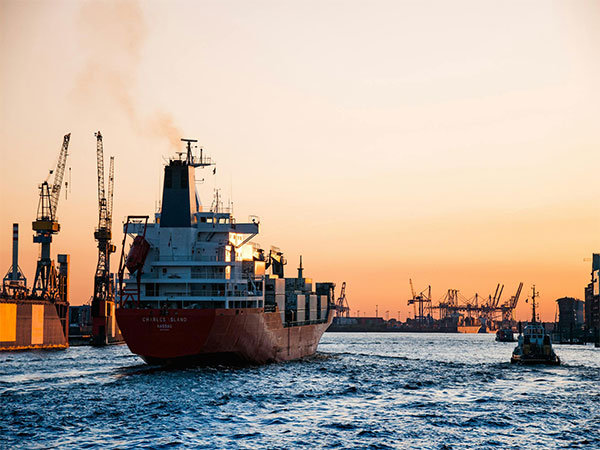Mumbai (Maharashtra) [India], October 14 (ANI): DP World, a leading global provider of smart end-to-end supply chain solutions welcomed the maiden call of the vessel MV Folk Jeddah at its Nhava Sheva International Container Terminal (NSICT), an official statement said.
This maiden voyage marked the commencement of the India Red Sea Service (IRS). This new service will strengthen connectivity between key ports in India and contribute to enhanced trade flows across the Middle East, the statement added.
The IRS service’s port rotation includes: Nhava Sheva, Mundra, Jeddah, and Salalah, providing vital links to India’s two of the largest major ports to along its route. By reducing transit time and improving access to major ports, the new route will further support strong trade link for bilateral trade between the Middle East and India, promoting efficient movement of goods.
Commenting on this significant milestone, Ravinder Johal the COO of Ports and Terminals, Operations and Commercial of DP World Subcontinent and MENA Region, said, “The commencement of the India Red Sea Service is a strategic step forward in enhancing trade connectivity across various regions that supports government’s vision of boosting exports by 2030. This service is designed to streamline supply chains and provide better connectivity to key ports, allowing businesses to operate with greater efficiency. This new service strengthens the trade links between India and the Middle East. At DP World, our aim is not only to support economic growth but also offer businesses faster access to emerging markets and optimize their supply chain.”
DP World remains committed to minimizing its environmental impact and ensuring sustainable trade operations. The company has made significant strides in integrating renewable energy and sustainable practices into its terminal operations in India, with the goal of leading the maritime sector towards a greener future. As part of this effort, DP World’s Nhava Sheva terminals initiative of open access sourcing of green power, with a cumulative capacity of 11 MW, is expected to replace approximately 75% of conventional energy needs at NSICT and 80% at NSIGT. This will lead to a 50% reduction in CO2 emissions. (ANI)
Disclaimer: This story is auto-generated from a syndicated feed of ANI; only the image & headline may have been reworked by News Services Division of World News Network Inc Ltd and Palghar News and Pune News and World News
HINDI, MARATHI, GUJARATI, TAMIL, TELUGU, BENGALI, KANNADA, ORIYA, PUNJABI, URDU, MALAYALAM
For more details and packages











